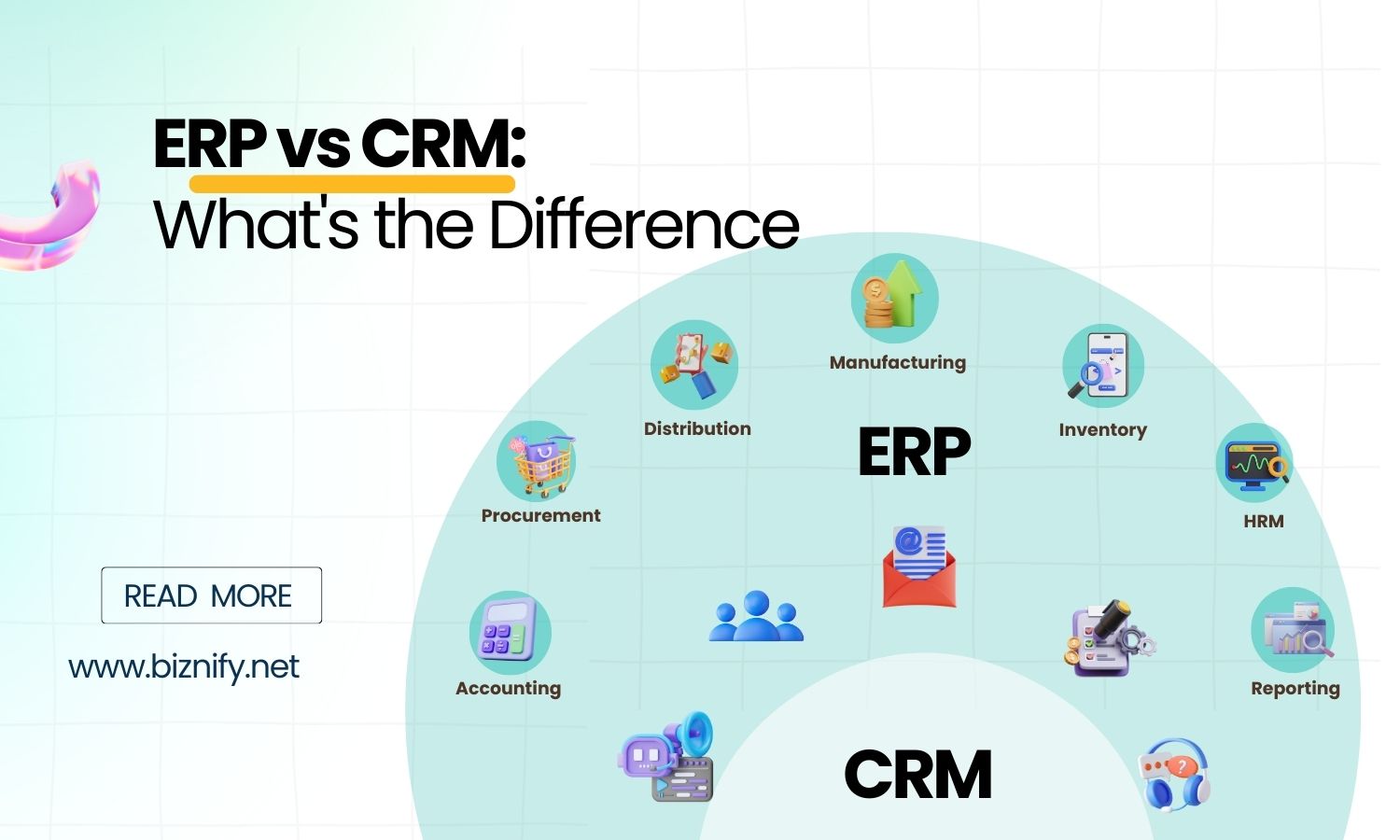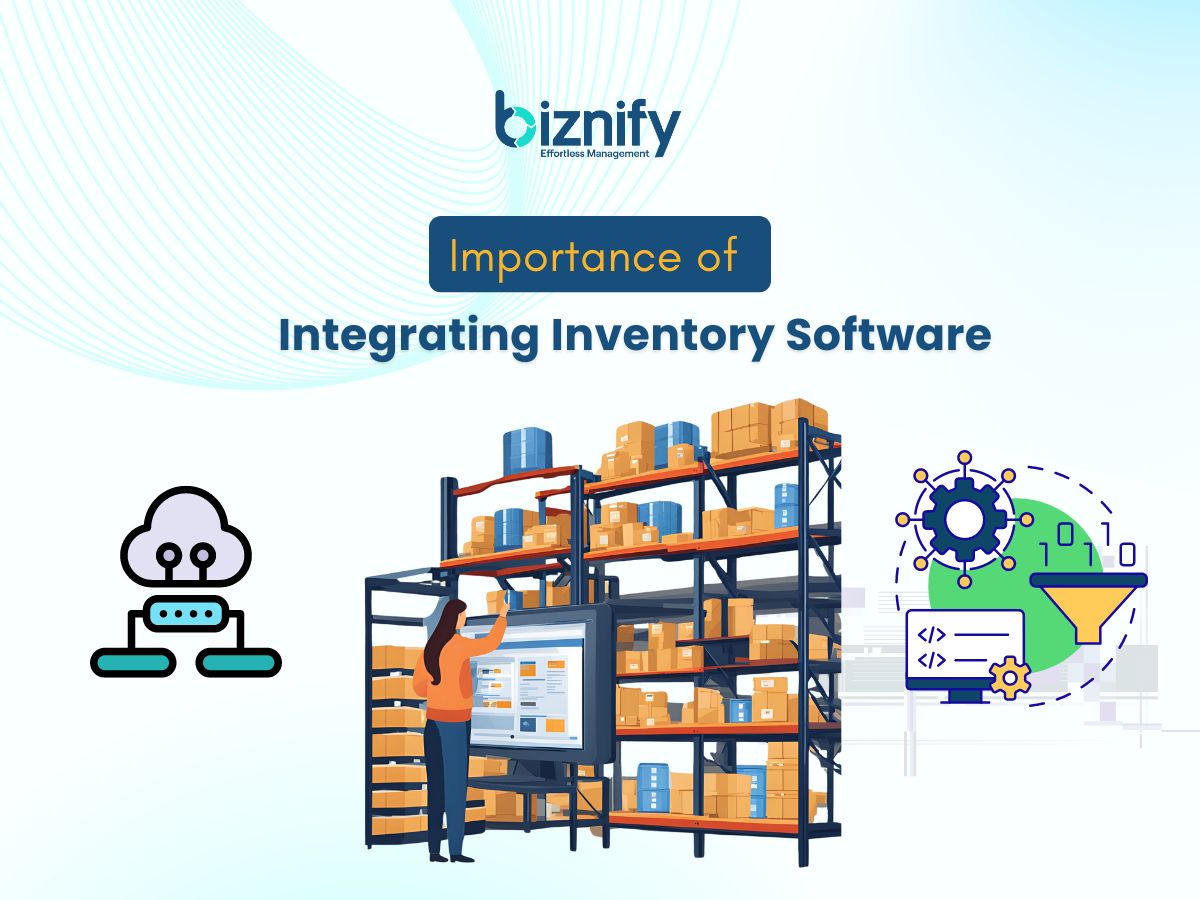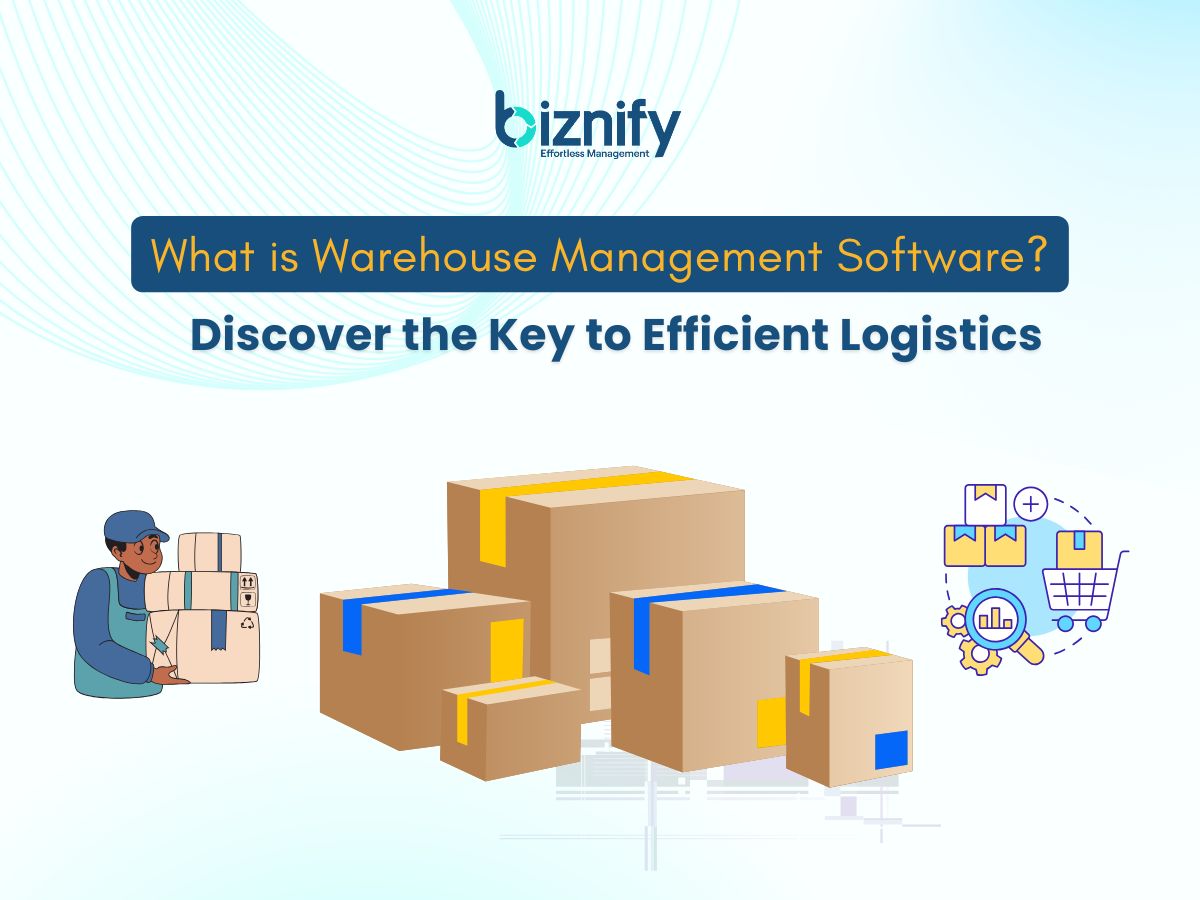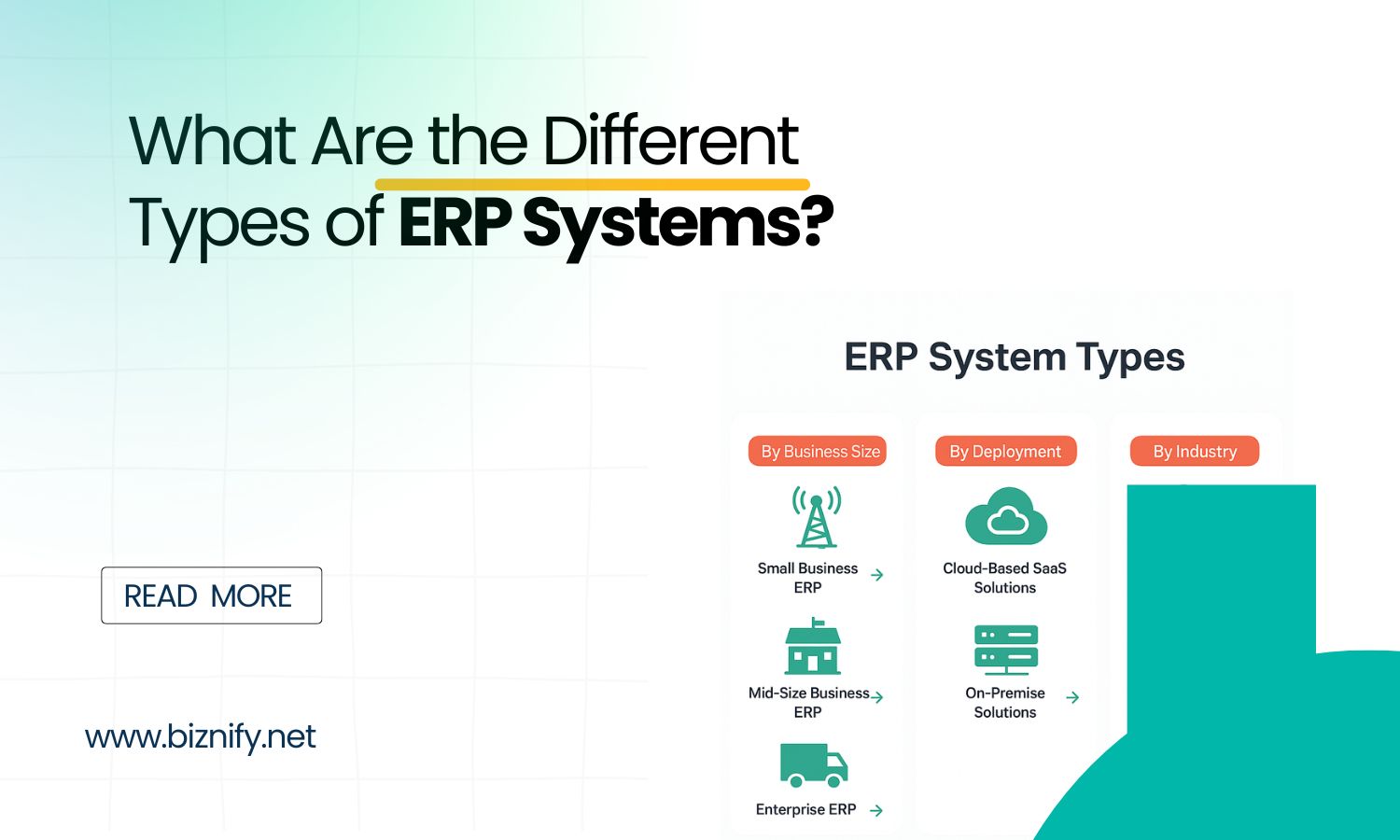
If you run a business, you’ve probably come across terms like ERP and CRM. Maybe someone said, “We just set up an ERP system,” or your sales team wants a CRM. But what do these tools actually do—and do you really need both?
This article keeps it simple. We’ll explain what ERP and CRM mean, how they work differently, and how they can work together to make running your business less stressful and more organized.
Customer Relationship Management (CRM) systems are designed to enhance customer relationships. Think of CRM as your business's friendly face. It focuses on managing interactions with your customers, ensuring their satisfaction and loyalty.
Picture a barista at your favorite coffee shop who remembers your name, your usual order, and even your birthday. That's CRM at work! These systems organize customer data, including contact details and preferences, allowing businesses to provide a personalized experience.
Imagine being able to send tailored offers to your clients based on their purchasing history—CRM makes that possible, leading to happier customers and repeat business.
ERP (Enterprise Resource Planning) software brings together finance, HR, inventory, and supply chain processes in one system. It gives managers accurate data across departments, helping them reduce delays and cut costs.
Think of a busy restaurant kitchen: every chef and waiter has a specific role, but they all work together to deliver a fantastic dining experience.
ERP brings this synergy to different departments, optimizing finance, human resources, supply chain, and more. From managing inventory to tracking employee salaries, ERP ensures that everything is in sync, which is especially valuable for larger organizations. The magic of ERP lies in its ability to adequately manage complex operations, allowing you to focus on growth.
If you’re still comparing tools, check out this list of top ERP software in Bangladesh to see how they stack up.
| Feature | ERP | CRM |
|---|---|---|
| Purpose | Internal business operations | Customer relationship tracking |
| Focus Areas | Inventory, Finance, HR, Supply | Sales, Marketing, Support |
| Users | Managers, Operations, Finance | Sales reps, Marketing teams |
| Output | Efficiency, reporting, controls | Leads, customer satisfaction |
| Example Tool | Biznify ERP | Zoho, HubSpot, Salesforce |
CRM captures customer needs and history. ERP uses this data to plan stock, manage orders, and forecast demand. When used together, both systems improve communication between marketing, sales, and operations.
For example, if CRM shows a spike in customer interest for a certain product, ERP ensures stock is available without delay.
When a customer expresses interest in a product, CRM captures that lead, and ERP can help you determine how much stock you need and how quickly to procure it.
Imagine using CRM to identify a surge in a specific product demand; ERP can efficiently manage supply and ensure the product is available just in time. This cohesive approach not only enhances operational efficiency but also amplifies customer satisfaction.
Accurate data is key to using both ERP and CRM effectively. CRM needs reliable customer profiles to segment and target offers. ERP requires accurate financial and inventory data to avoid errors in reporting and planning.
ERP relies on accurate data to ensure that internal resources are tracked and managed correctly. For example, incorrect financial data can lead to serious business miscalculations.
By defining clear responsibilities and data management strategies across all departments, companies can streamline their processes, enhance communication, and prevent costly mistakes.
One of the standout features of ERP is its ability to manage the supply chain effectively. Integrating IoT and mobile connectivity, ERP systems optimize procurement and inventory management. Imagine you’re in the business of shipping goods.
ERP software supports supply chain functions like procurement, vendor management, and stock levels. It calculates ideal restock times and order quantities to reduce costs. For wholesalers in Bangladesh, this means fewer stockouts and better cash flow visibility. Biznify ERP includes built-in inventory and procurement tools tailored for local logistics needs.
Originally born in the manufacturing sector, ERP systems are now adopted in various industries, including healthcare, construction, and the retail industry.
Each industry has unique needs; hence, ERP solutions are tailored to address specific departmental functions. For instance, a healthcare facility might use ERP to manage patient records while effectively tracking financial resources.
In retail, ERP can help manage inventory levels and analyze sales trends. This adaptability makes ERP a powerful tool across sectors, demonstrating its versatility and critical role in modern business operations.
Understanding your competition is crucial for business success, and both CRM and ERP can help you gain that competitive edge. CRM does this by analyzing customer interactions and feedback, allowing you to tailor your offerings to meet market demands. On the other hand, ERP provides insights into production efficiency and cost structures, empowering you to make informed pricing decisions.
By using both systems, businesses can identify market opportunities, improve customer satisfaction, and ultimately outshine competitors. It’s like having a secret weapon that keeps you one step ahead!
Choosing the right system is key. CRM helps build relationships. ERP connects departments and streamlines workflows. Used together, they make business management simpler.
CRM helps you know your customers better, while ERP keeps your operations running smoothly. They’re not competitors—they’re teammates.
When you understand how each one works and when to use them, you set your business up for smarter growth and fewer headaches. Biznify ERP software in Bangladesh supports integration with CRM platforms to give Bangladeshi businesses a complete view of operations and customers. Learn how Biznify ERP software in Bangladesh helps you manage operations with less hassle.
ERP handles internal processes like accounts, inventory, and payroll. CRM helps manage customer data and sales. Both work better when used together.
Yes. Integration allows ERP and CRM to share real-time data, helping marketing, sales, and operations teams work better together.
ERP manages operations inside your business (HR, finance, inventory). CRM manages relationships with customers (leads, communication, support).
Yes. Many SMEs and mid-sized firms in Bangladesh use ERP with built-in or integrated CRM to manage customers and operations in one place.
Biznify ERP supports CRM integration and offers lead tracking, communication logs, and customer profiling tools tailored for local businesses.
ERP shows service teams real-time stock, orders, and billing details—making it easier to support customers without switching systems.
If your ERP lacks sales and customer engagement tools, then CRM fills that gap. For full business visibility, using both is ideal.
Finance, HR, inventory, procurement, and upper management use ERP daily for tracking operations, costs, and reports.
CRM includes contact management, lead tracking, deal pipelines, campaign logs, and sales analytics dashboards.
If your business needs basic CRM features with strong ERP functions, Biznify ERP may be enough. For complex CRM workflows, you can integrate third-party tools.



Just exploring ERP or unsure which modules you need? The Biznify team’s here with straight answers.
